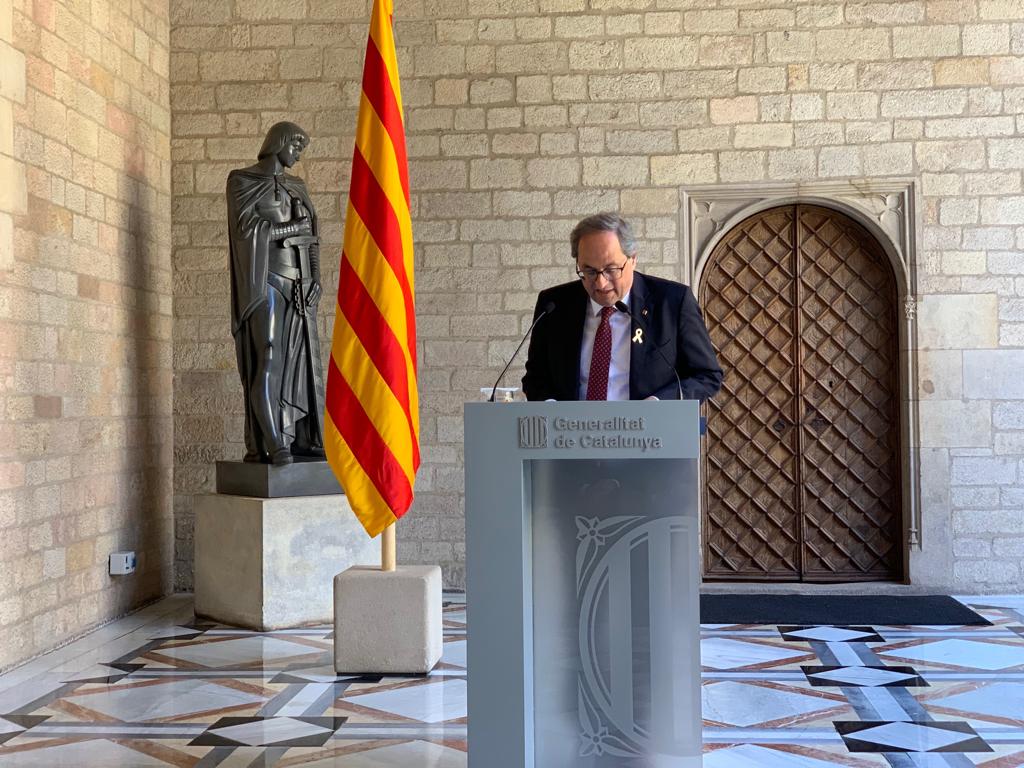The controversy started in the run-up to last month's Spanish general election. Arguing the "public powers' obligation to strictly maintain political neutrality during elections", Spain's Central Electoral Commission had ordered president Quim Torra to remove a banner of support for the Catalan prisoners from the façade of the Catalan government palace for the duration of the campaign. Having refused to meet a first deadline and put up an alternative banner on freedom of speech in the face of a second, public prosecutors filed a lawsuit for disobedience with the High Court of Justice of Catalonia.
Today, president Torra testified before the court, after which he returned to the palace at the heart of the controversy to give a speech in which he denounced what he described as clear bias and political intent from the Commission against the independence movement. "The president of Catalonia can never falter in the conquest of rights and freedoms, and if Spanish democracy doesn't tolerate this defence I'll pay whatever price is necessary," he said.
"In defence of freedom of expression you'll find me on the front line to the end, whatever the consequences. There's no trivial fight when it's a question of collective rights and the freedoms which have been won with so much effort and sacrifice," the president said.
He added that Spain's "democratic regression, authoritarian drift and the violation of fundamental rights" are now among the independence movement's biggest motivations to "construct a future in freedom".
Compareixença íntegra del #president @QuimTorraiPla després de declarar al TSJC per haver mantingut la pancarta a favor dels exiliats i presos polítics al balcó del #Palau. pic.twitter.com/VUjjIjIlJW
— Govern. Generalitat (@govern) 15 de mayo de 2019
"We're facing a new attempt to intimidate, to scare, to threaten, wanting liberty to not win," Torra said. He said that "democratic shortfalls" are now normal in Spain, emphasising what he sees as a need to fight "bad faith and lack of political rigour" from a significant number of official Spanish bodies.

